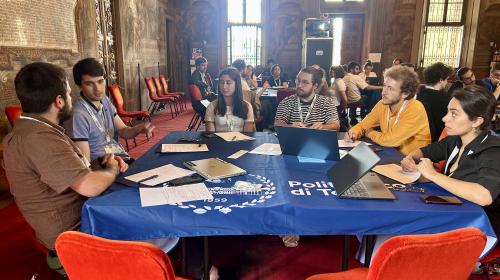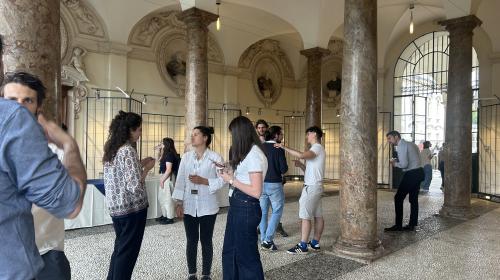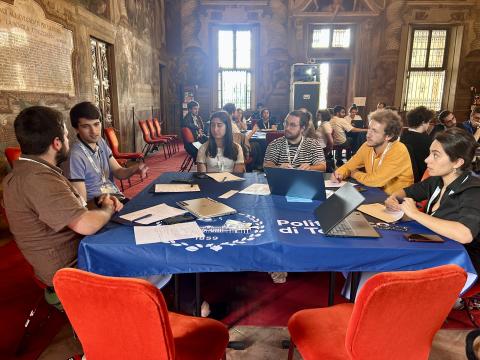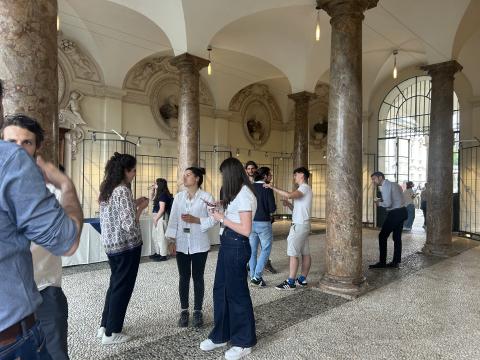
The second edition of the Young Scientist Event at Castello del Valentino
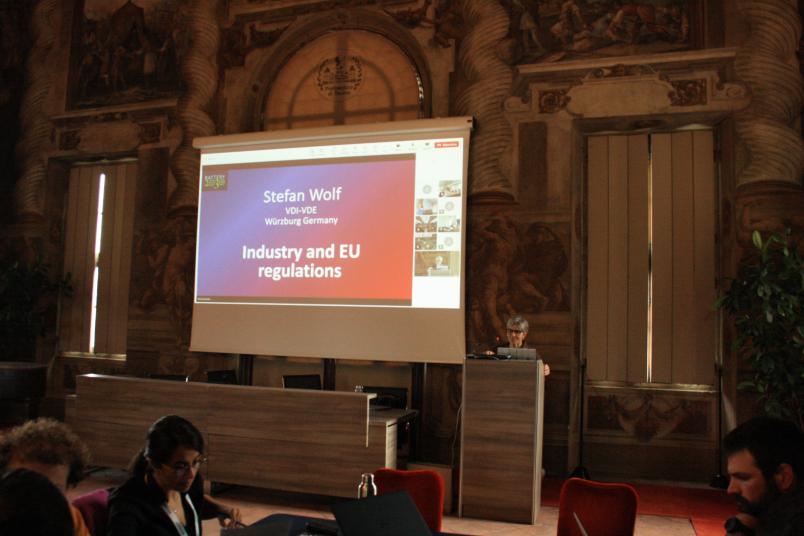
The Young Scientist Event (YSE) is a transnational event created to bring together young scientists from across Europe, with the aim of outlining the future of research in the battery sector. Its second edition was held on June 3, 2025, at Castello del Valentino, coordinated by PoliTO as a part of the BATTERY 2030+ project. The initiative aims to enhance the most innovative ideas of the new generation of researchers.
The event took place simultaneously in six European cities, connected online to encourage open and inclusive discussion. In addition to Politecnico di Torino, the University of Uppsala (Sweden), Vrije Universiteit Brussel (Belgium), Warsaw University of Technology (Poland), Université de Picardie Jules Verne in Amiens (France), and Fraunhofer ISC in Wurzburg (Germany) were involved in the project, with approximately 160 young scientists distributed across the various locations: 45 met in person in Turin.
The selected participants are young scientists who have obtained their PhD no more than seven years ago, ensuring a wide range of experiences and competencies, both within and outside the battery field. Among the participants were experts in batteries, engineers, chemists, physicists, economists, doctors, and professionals with humanities specializations, from both the research sector and companies, with particular attention to gender equality.
The objectives of the BATTERY 2030+ project
The vision of BATTERY 2030+ is to design the batteries of the future, providing European industry with disruptive technologies and a competitive advantage along the entire value chain, enabling Europe to assume a leadership position in this sector in both scientific and technological fields, combined with a strong focus on sustainability. The YSE is indeed an important opportunity to involve the younger scientific community, where they could express their ideas on the future landscape of battery research and provide input for the BATTERY 2030+ roadmap and curricula.
During the event, work began on drafting a "New Manifesto for Future Batteries". This manifesto is based on three macro-thematic areas, defined by the Battery2050+ community (formed during the annual Battery2030+ conference): new achievements in the battery field, such as next-generation solid-state batteries, silicon anode batteries, advanced lithium-ion batteries, and intelligent functionalities; sustainable systems, recycling and second life, circular economy; industry and European regulations, to regulate the commercialization of new products and the implementation of sustainable production processes.
The manifesto is being drafted through discussions at working tables and joint online sessions, with a key role played by table leaders who will coordinate the work and draft a first version. The document will then be shared with all participants for modifications and discussions, to finally be submitted by the end of July and published on the Battery2030 website at the beginning of August 2025. The official presentation of the manifesto will take place at the Nanoinnovation conference in Rome, from September 15 to 19, 2025.
The day's program included, after initial greetings from Silvia Bodoardo, Johan Blondelle representing the European Commission, and Patrik Jonhansson and Kristina Edstrom for Battery2030, presentations by Mathieu Morcrette (CNRS Amiens) on "Novelties in battery area: next generation batteries," Witold Uhrynowski (Warsaw) on "Sustainable Systems, recycling and second life, circular Economy," Ilka Von Dalwigk on "Sustainable production processes. How to learn from mistakes," Stefan Wolf (VDI-VDE) on "Industry and EU regulations," Elena Bonvecchio (BEPA) on "How to commercialize a product," and the concluding speech by Rector Stefano Corgnati on "Societal impacts of electrification and bureaucracy".
Politecnico plays a central role within the BATTERY 2030+ community, thanks to the coordination work of Professor Silvia Bodoardo, lecturer in the Department of Applied Science and Technology-DISAT. The June 3 meeting, funded by the European Union's Horizon Europe research and innovation program, proved to be a fundamental opportunity to give a voice to the next generation of scientists and shape the future of batteries in Europe, promoting frontier research and sustainable solutions for industry.
